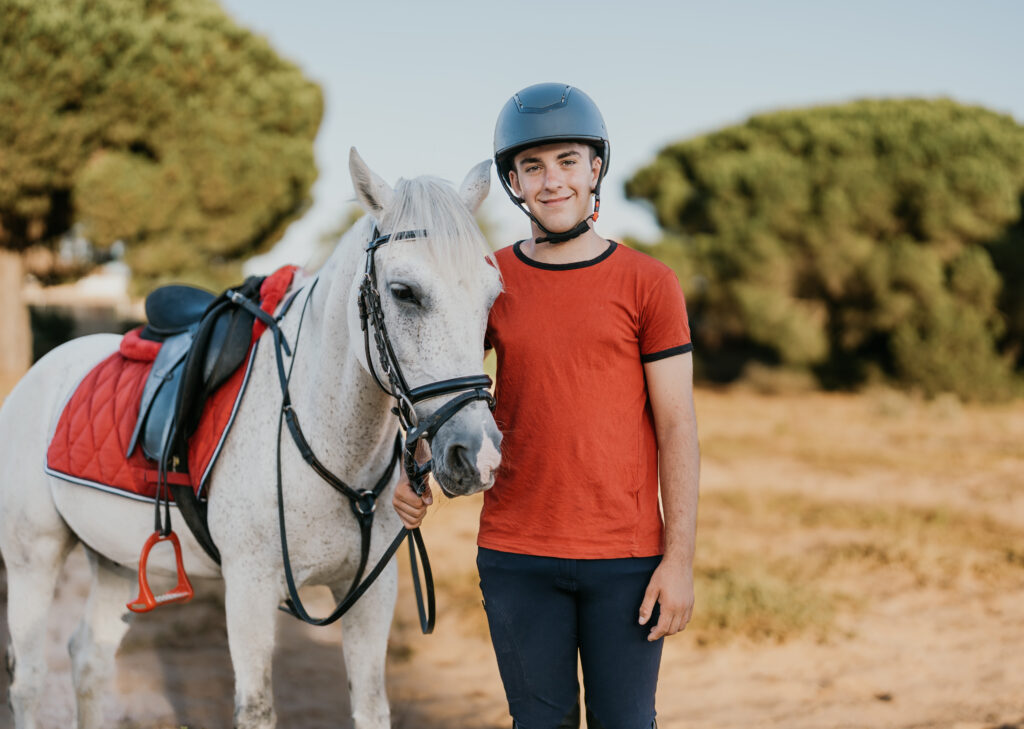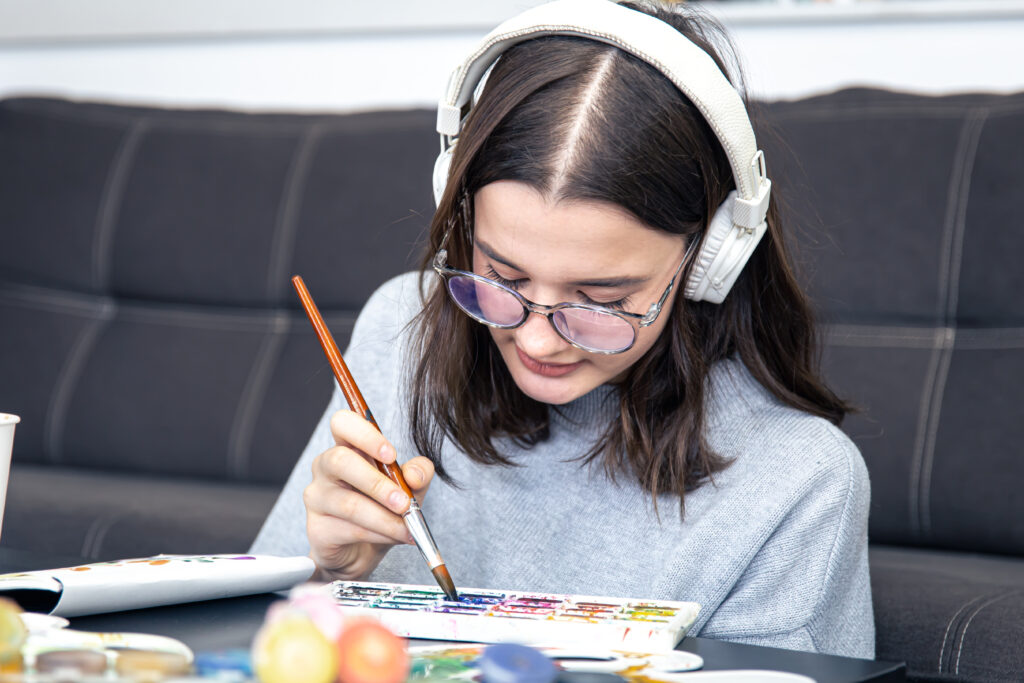Imagine a 15-year-old named Noah, diagnosed with autism, who struggles with social interactions and confidence. His parents worry that he spends most of his time alone, avoiding group activities and preferring routine-based solo play. Then, they enroll him in a specialized recreational program designed for young adults with autism. At first, Noah is hesitant, avoiding eye contact and participating minimally. But within weeks, he starts smiling more, making eye contact, and even making friends. His parents notice a change—they see him growing more confident, communicating better, and becoming excited about new experiences.
Stories like Noah’s are common when young adults with autism find the right recreational program. Research has shown that structured recreational activities can significantly improve social skills, emotional regulation, and overall happiness in individuals on the autism spectrum. According to the Centers for Disease Control and Prevention (CDC), about 1 in 36 children in the U.S. is diagnosed with autism, and many of them face challenges in communication, motor skills, and social interactions. Recreational programs provide a safe and engaging space where these young adults can learn, grow, and have fun while building essential life skills.
For parents looking for ways to engage their autistic young adults in meaningful and enjoyable activities, specialized recreational programs can make a world of difference. Below are five must-try programs that help young adults with autism develop confidence, improve their social skills, and have fun in an inclusive environment.
1. Therapeutic Horseback Riding

Therapeutic horseback riding, also known as equine-assisted therapy, is one of the most beneficial recreational programs for young adults with autism. This activity involves riding and interacting with horses in a structured setting guided by trained professionals. The rhythmic movement of the horse has been shown to help with sensory integration, muscle tone, balance, and posture.
Why It Works for Young Adults with Autism
Many individuals with autism struggle with sensory processing, which means they may have difficulty interpreting or responding to sensory information. The repetitive, rhythmic motion of horseback riding can help regulate their sensory systems, providing a calming effect similar to deep pressure therapy. Additionally, forming a bond with a horse can help young adults develop emotional connections, improving their ability to understand and express feelings.
Key Benefits:
- Improves motor coordination, muscle strength, and balance
- Enhances emotional connection and self-confidence
- Encourages responsibility and discipline through horse care
- Provides a calming and therapeutic experience
Many programs are offered through the Professional Association of Therapeutic Horsemanship (PATH) and local equine therapy centers. These programs cater specifically to individuals with disabilities, ensuring that each rider receives the support they need.
2. Adaptive Sports Programs
Traditional sports can sometimes be overwhelming for young adults with autism due to fast-paced interactions, loud noises, and unpredictable social expectations. However, adaptive sports programs modify activities to fit the unique needs of individuals with disabilities. These programs include soccer, basketball, swimming, bowling, and even rock climbing in a structured, supportive environment.
How Adaptive Sports Help Young Adults with Autism
Many young adults with autism benefit from physical activities that help them develop coordination, strength, and endurance. Engaging in sports also provides an opportunity to practice teamwork, follow instructions, and improve communication skills in a fun and non-competitive way. Unlike traditional sports leagues, adaptive sports emphasize inclusion, encouragement, and flexibility, making them ideal for individuals on the spectrum.
Key Benefits:
- Enhances physical fitness, coordination, and motor skills
- Encourages teamwork and positive social interactions
- Builds self-confidence through skill mastery
- Reduces stress and anxiety through structured movement
Organizations like the Special Olympics, Autism Speaks, and local YMCAs often provide adaptive sports programs designed for young adults with autism.
3. Art and Music Therapy

Creative expression is a powerful tool for individuals with autism, and art and music therapy programs allow young adults to explore their creativity in a structured yet flexible way. These programs use painting, drawing, sculpture, drumming, singing, and instrument playing to help participants communicate, process emotions, and develop motor skills.
Why Art and Music Therapy Works
Many young adults with autism find it difficult to express their emotions verbally. Art and music provide an alternative communication method, allowing them to express their thoughts and feelings in a way that feels natural. Art therapy can help develop fine motor skills and hand-eye coordination, while music therapy can enhance listening skills, emotional expression, and social engagement.
Key Benefits:
- Encourages self-expression and creativity
- Improves focus, communication, and emotional regulation
- Helps develop fine motor skills and sensory integration
- Provides a relaxing and therapeutic outlet for stress
Local community centers, private studios, and even schools often offer specialized art and music therapy programs for young adults with autism.
4. Social Skills and Drama Clubs
Drama and social skills programs are excellent for helping young adults with autism develop communication and social confidence. These groups use role-playing, storytelling, and interactive exercises to teach essential social skills in a structured and low-pressure environment.
Why Drama Clubs Benefit Young Adults with Autism
Many individuals with autism find it difficult to interpret social cues, body language, and tone of voice. Drama-based activities provide a fun and engaging way to practice these skills, allowing young adults to explore different social scenarios through guided play. Acting out everyday situations—such as ordering food at a restaurant or making small talk—helps participants gain real-world social experience in a supportive setting.
Key Benefits:
- Helps develop social confidence and verbal communication skills
- Encourages teamwork, cooperation, and empathy
- Provides a structured way to practice social scenarios
- Reduces social anxiety by promoting self-expression
Many autism-focused organizations, including Autism Speaks and local performing arts centers, offer social skills and drama programs designed to help young adults build confidence and form connections with peers.
5. Outdoor Adventure and Nature Programs
Spending time in nature has been proven to reduce stress, improve focus, and boost mood, making outdoor adventure programs a great choice for young adults with autism. Activities such as hiking, fishing, camping, and gardening provide opportunities for physical exercise, sensory exploration, and relaxation.
Why Nature Programs Are Beneficial
Many young adults with autism experience sensory overload in urban settings, but nature offers a calming environment with fewer distractions. Outdoor programs help improve sensory processing, attention span, and emotional regulation while allowing participants to develop life skills.
Key Benefits:
- Encourages physical activity in a low-pressure environment
- Improves sensory processing and emotional regulation
- Provides a structured way to explore new experiences
- Boosts confidence and independence
Many local parks, autism organizations, and nature therapy programs offer guided outdoor experiences tailored for young adults with autism.
How Can New Directions for Young Adults Help You?
Finding the right recreational programs for young adults with autism can be life-changing, but knowing where to start can be overwhelming. At New Directions for Young Adults, we provide comprehensive support for young adults with autism, including access to engaging recreational activities that build confidence, independence, and social skills.
Located in Deerfield Beach, FL, our team specializes in transitional living programs that help young adults gain independence while participating in structured recreational activities. Whether your child needs support with social development, therapy, or hands-on learning experiences, we are here to help.
Address: 3275 W Hillsboro Blvd #110, Deerfield Beach, FL 33442
Phone: (954) 571-5102
Let us help your child thrive! Contact us today to learn more about our programs and how we can support your family.
Frequently Asked Questions
How can I determine which recreational activity is best suited for my child with autism?
Observe your child’s interests and strengths, and consider exposing them to various activities to see which ones they enjoy and engage with the most.
Are there recreational programs specifically designed for young adults with autism?
Yes, many communities offer specialized programs such as adaptive sports leagues, art and music therapy sessions, and social skills groups tailored to the needs of young adults with autism.
What should I do if my child feels overwhelmed during a recreational activity?
It’s important to have a plan in place; consider starting with activities that have a predictable structure and gradually introduce new experiences, ensuring support is available to help them manage sensory sensitivities.
How can recreational activities benefit my child’s development?
Engaging in recreational activities can enhance social skills, boost self-esteem, improve physical health, and provide opportunities for building friendships and community involvement.




